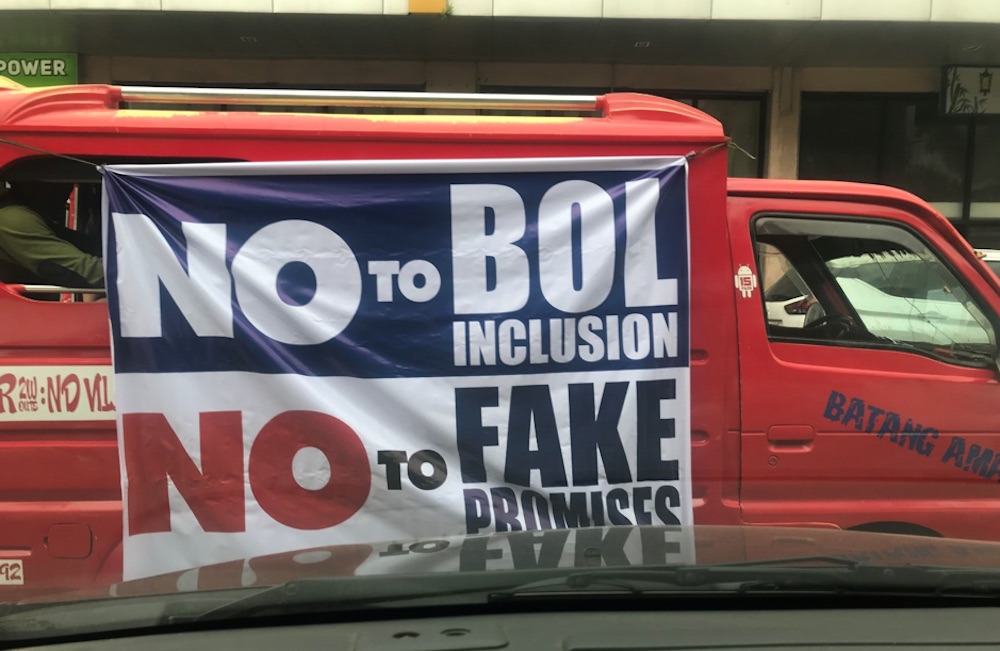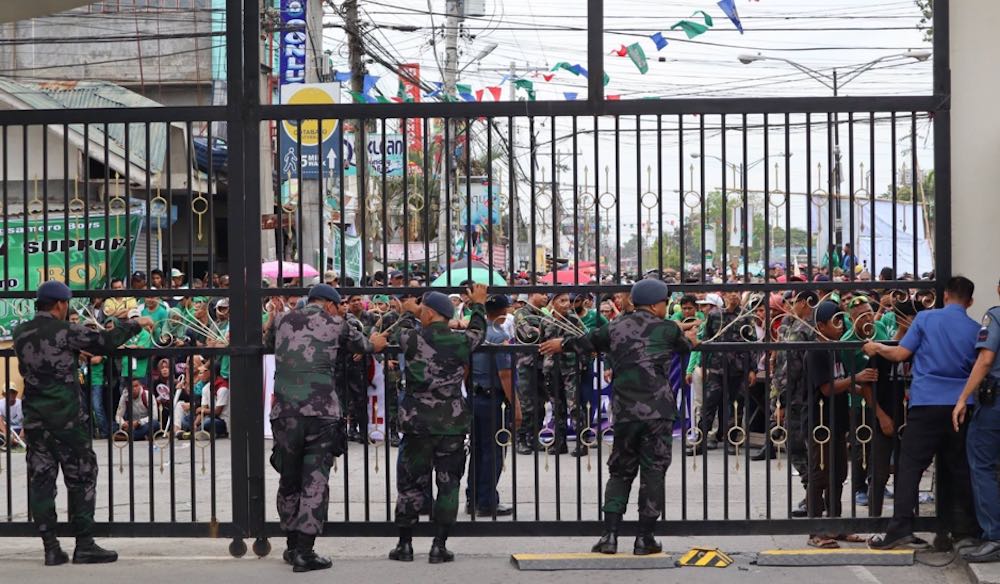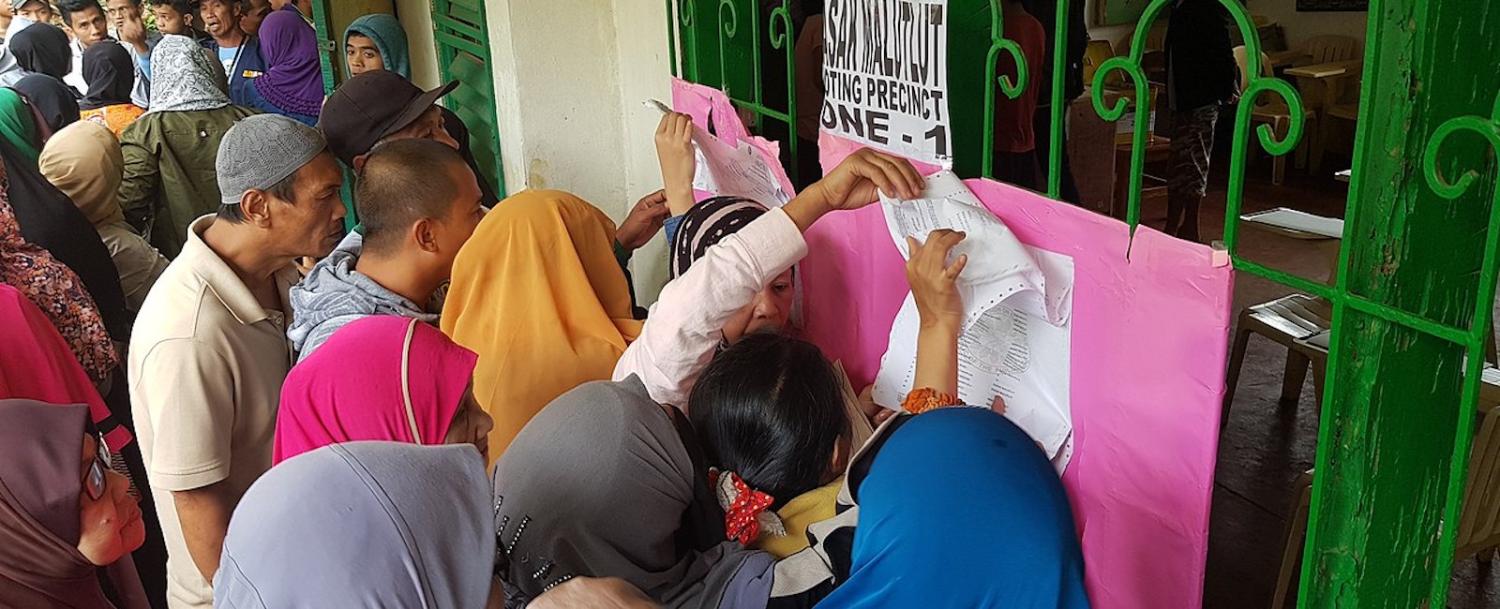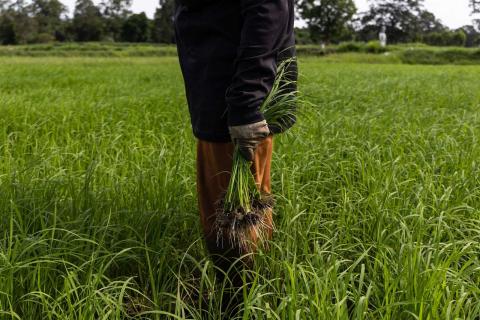Mindanao, the region in southern Philippines, rarely on the international agenda for good news, enjoyed a win last month. A resounding Yes vote in support of a new law based on a comprehensive peace plan sent a clear message that the people of the Autonomous Region of Muslim Mindanao (ARMM) see the new law as a means to end the conflict. But it will still take sustained efforts to build local peace.
The first stage of the plebiscite stems from the ratification of the Bangsamoro Organic Law (BOL), which finally passed the Philippine Congress in July last year after a four-year delay. This cemented a foundational law that came out of the Comprehensive Agreement in the Bangsamoro (CAB) between the Moro Islamic Liberation Front (MILF) and the Philippine government in 2014.
Voter turnout for the plebiscite on 21 January 2019 was high at 85.13%, and the result overwhelming. The Yes vote attracted 1,540,017, against just 198,750 choosing No.

The next leg of the plebiscite will take place on 6 February. This will determine whether voters in the expansion areas of North Cotabato and Lanao del Norte will affirm their intention to be part of a larger geographical area of the Bangsamoro Autonomous Region of Muslim Mindanao (BARMM), the political entity that would replace ARMM. A MILF-led Bangsamoro Transition Authority (BTA) will be constituted as the transition government for BARMM until the elections are held in 2022.
In the highly contested area in Cotabato City, the campaign for or against ratification was largely seen as a political competition among rival clans.
Expectations are high for the BOL among the local population, putting a huge responsibility for the new political leadership to show results as soon as it can. About 76% of Filipino Muslims trust that a MILF-led government is capable of governing the BARMM.
But fatal bombings in Jolo and in Zamboanga City just a few days after the January plebiscite again demonstrated that peacebuilding in Mindanao is contentious – and vulnerable. The province of Sulu and Isabela City rejected the BOL, while a fierce contest took place in Cotabato City that was ultimately won in favour of the Yes vote.
In the highly contested area in Cotabato City, the campaign for or against ratification was largely seen as a political competition among rival clans. As in all electoral exercises, embedded clan dominance or competition can deeply affect the results. The powerful clans and families ensured the affirmative vote in most localities. The Catholic Church and civil society groups working together – Muslims, Christians, and Indigenous peoples – have been credited for the success of the BOL in Cotabato City.
The promise of robust economic development in the region, once BARMM is established, is appealing, as it is the most impoverished region in the Philippines. But it is the desire for freedom from fear, violence, and insecurity that resonates through the local population. After all, development in Mindanao could not proceed in the absence of peace.
Addressing conflict and security will still be the top priority under the new government. That involves dealing with ISIS-inspired groups and managing the fierce and often violent local politics that is expected to escalate ahead of the Philippine’s coming May 2019 midterm elections.

The wish list is lengthy, yet to local stakeholders, transforming local politics and governance into peaceful, inclusive, and accountable democratic practice sits at the top. “We want fresh faces in local government”, one person told us as part of a research project in the area, a tough task considering that even the BTA will have all 25 elected representatives as part of the 80-person transition government.
The BOL promises big. Based on hard negotiated past agreements, the law is comprehensive in substance and structure that could enable the Bangsamoro people to pursue, within a peaceful democratic framework, their right to self-determination. The basic law provides for a parliamentary form of government that assures representation of various sectors and indigenous peoples, fiscal autonomy, and greater control of natural resources to ensure an independent pathway to economic development. It would also see an enhancement of Sharia and indigenous justice system in recognition of local religious and cultural heritage.
Expectations, however, need to be tempered. Failing hard on the promises could only exacerbate prevailing discontents on poverty, poor governance, and fragile local security. While many people in the Marawi City have “moved on” from the pain of losing properties and lives during the 2017 siege, they could not wait for long on the much-delayed rehabilitation.
The youth has been mobilised for the BOL plebiscite and they are the group that eagerly wants to re-write their history. They are a force to reckon with, comprising a sizable population. But even those who bear witness to Mindanao’s violent beginning could only utter an unflinching, “Let’s wait and see”.
We wait for the coming of a new dawn in Mindanao, with bated breath.
Imelda Deinla is a Research Fellow at the School of Regulation and Global Governance, the Australian National University. She travelled to Mindanao before and during the January 21 plebiscite to produce a short documentary on the BOL ratification with the Institute for Peace and Development Studies at the Mindanao State University in Marawi City.

